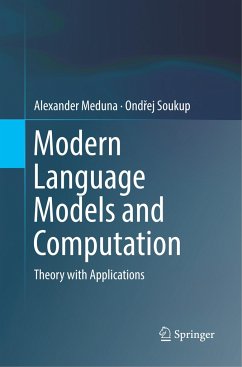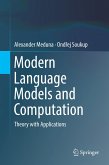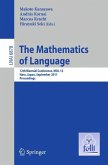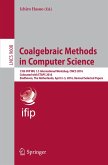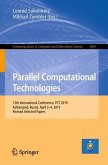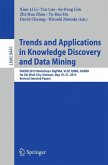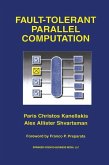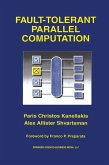This textbook gives a systematized and compact summary, providing the most essential types of modern models for languages and computation together with their properties and applications. Most of these models properly reflect and formalize current computational methods, based on parallelism, distribution and cooperation covered in this book. As a result, it allows the user to develop, study, and improve these methods very effectively.
This textbook also represents the first systematic treatment of modern language models for computation. It covers all essential theoretical topics concerning them. From a practical viewpoint, it describes various concepts, methods, algorithms, techniques, and software units based upon these models. Based upon them, it describes several applications in biology, linguistics, and computer science.
Advanced-level students studying computer science, mathematics, linguistics and biology will find this textbook a valuable resource. Theoreticians, practitioners and researchers working in today's theory of computation and its applications will also find this book essential as a reference.
This textbook also represents the first systematic treatment of modern language models for computation. It covers all essential theoretical topics concerning them. From a practical viewpoint, it describes various concepts, methods, algorithms, techniques, and software units based upon these models. Based upon them, it describes several applications in biology, linguistics, and computer science.
Advanced-level students studying computer science, mathematics, linguistics and biology will find this textbook a valuable resource. Theoreticians, practitioners and researchers working in today's theory of computation and its applications will also find this book essential as a reference.
"The book can ... be fruitfully used by a broad variety of scientists, from researchers working on related theoretical disciplines (mathematicians, computer scientists) to researchers working on various applications (e.g., linguists, engineers, biologists)." (Benedek Nagy, Mathematical Reviews, June, 2020)
"The book provides a concise theoretical treatment of a selection of advanced string-grammar formalisms used particularly in formal language theory. ... This research monograph can serve as an excellent reference for non-standard grammar formalisms with a strong focus on regulation. All relevant results are presented in full detail and proper references are provided to the original literature. The mentioned applications serve as motivation, but the main emphasis is clearly on the exposition of thetheoretical results." (Andreas Maletti, zbMATH 1385.68002, 2018)
"The book provides a concise theoretical treatment of a selection of advanced string-grammar formalisms used particularly in formal language theory. ... This research monograph can serve as an excellent reference for non-standard grammar formalisms with a strong focus on regulation. All relevant results are presented in full detail and proper references are provided to the original literature. The mentioned applications serve as motivation, but the main emphasis is clearly on the exposition of thetheoretical results." (Andreas Maletti, zbMATH 1385.68002, 2018)

